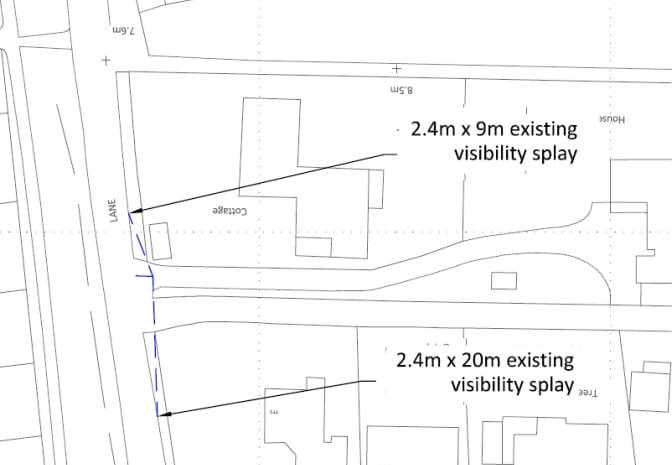Selling or Buying with an Overage Provision on land
 By Shaun Adams
Subscribe to newsletter
By Shaun Adams
Subscribe to newsletterPlease note We cannot give any advice on Overage other than this blog.
Selling or Buying with an Overage Provision
There are circumstances where, sellers of property may want to consider selling property subject to overage provisions.
What is an Overage?
Overage / Clawback / Uplift are all expressions used to describe the same thing i.e. a requirement by a Seller that the Buyer in certain circumstances at some stage after completion of the sale pays additional payments to the Seller for the same piece of land. The payment
“Seller”
The person who imposes the obligation in the first place is the Seller. However, usually the seller can give or sell the right to receive the payment to a third person so it is not always necessarily the original person.
“Buyer”
In order to make the arrangements effective the obligation to make the payment will be with the Buyer and anyone to whom the Buyer transfers the land, or part of it, in the future.
“In Certain Circumstances”
Overage payments are not standard and different arrangements will apply to each transaction depending on what the parties agree. Some examples of circumstances which might trigger an overage payment:
Planning Permission is granted for the construction of a further dwelling within the land owned;
Planning Permission is granted for demolition and re-building of a more intensive development;
Property is sold with benefit of a Planning Permission but the Seller envisages that the Buyer may obtain a more favourable or intensive Planning Permission in the future.
Planning Permission is granted for change of use.
These Planning Permissions are often referred to as “Qualifying Planning Permissions”
“At some stage”
The overage agreement will apply for whatever number of years the Seller and Buyer agree at the outset. There is no minimum period but the absolute maximum is eighty years.
Some More Details
How does the Promise to Pay pass from Buyers to Future Owners?
The Seller makes sure that Future Owners of the land will still have to pay by either:
Imposing a Restriction on title to the property at the Land Registry to the effect that no transfer of the land can take place unless the new owner has entered into a Deed of Covenant with the Seller promising to make the payment. In this way there is always a direct contractual commitment from whoever is the then owner
and/or
Imposing a Charge on the property.
However, even though overage arrangements are becoming more common not all lenders may be happy to lend against properties with Overage arrangements on their title and if you are thinking of buying a property with an overage provision you should check your lender's views (or ask a solicitor to do so) as early as possible in the transaction.
When is the Payment Made?
The overage document itself will specify exactly when the payment is made but for example this can be
On the grant of a Qualifying Planning Permission;
When land is sold with the benefit of a Qualifying Planning Permission;
When a Qualifying Planning Permission is implemented.
Again it is a matter for the parties to agree when they want the payment to become payable.
How is the Payment Calculated?
The Seller normally expects to receive a percentage of the increase in value of the property which has been generated by the grant of a Planning Permission. The percentage can be whatever the parties agree but if for example the parties had agreed 50% the payment would be calculated using the formula A – B x 50% = the Uplift Payment where:
A = the value of the property with the Qualifying Planning Permission and
B = the value of the property without Qualifying Planning Permission.
In this way natural or inflationary increases in value are retained by the Buyer but the Seller shares in the uplift in value caused by the grant of the Planning Permission.
Often the parties agree that certain expenses can be deducted before the payment is made. This is a matter for negotiation.
Detailed valuation advice needs to be taken.
What about Stamp Duty Land Tax?
This is a problem for the Buyer rather than the Seller. The Buyer pays Stamp Duty Land Tax on the purchase price and on the estimated enhanced value of the land unless before or within 30 days of completion the Buyer applies for a deferment of the extra Stamp Duty Land Tax which would be payable. In some cases, if the triggering event may happen fairly quickly some SDLT based on the anticipated value may be payable within 30 days of completion too. When an event occurs which would trigger the Overage Payment a further Stamp Duty Land Tax Return would have to be submitted and the additional Stamp Duty Land Tax would then be paid. If the additional payment puts the transaction into a higher rate banding additional duty may become payable on the original consideration as well.
Costs:
Whether selling or buying in any transaction involving an overage the legal costs will be very considerably more than you would expect to pay on just a sale or purchase. The documentation is complicated and is often subject to detailed negotiation between solicitors. There is no standard document which can apply to every transaction.
Ongoing Costs:
There will be additional legal and possibly surveyors' costs to be incurred both by Seller and Buyer on each subsequent disposal of the land.
Ongoing Practical Issues
Problems could occur if the person with the benefit of the overage payment cannot be found when their consent is being sought to a further sale so it is vital at all times to know who they are and how to contact them, as even if no money is due them at that stage their signature would still be needed. Obviously this can cause delay as they may not be in such a hurry to get on with the transaction as say the Seller and Buyer are.
This is a general information sheet only. It must not be relied on in relation to any particular matter. Overage provisions are very complicated and specific advice should be taken on any specific issue.
courtesy of www.bevirs.co.uk
Cooper Adams are an estate agency in West Sussex selling and letting around Rustington, Littlehampton, Angmering, East Preston, Ferring and Worthing areas.
We cannot give any advice on Overage other than this blog.
For expert advice you will need to speak to a qualified UK solicitor.


